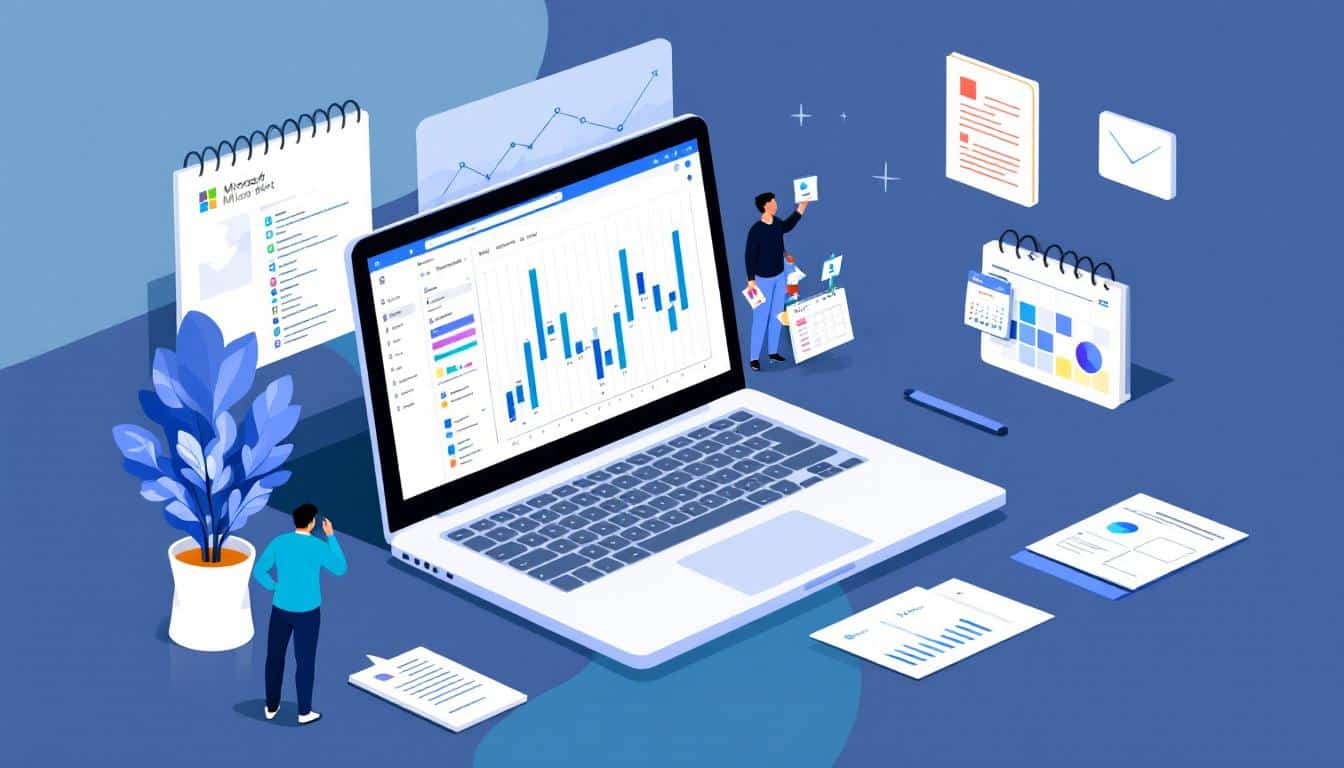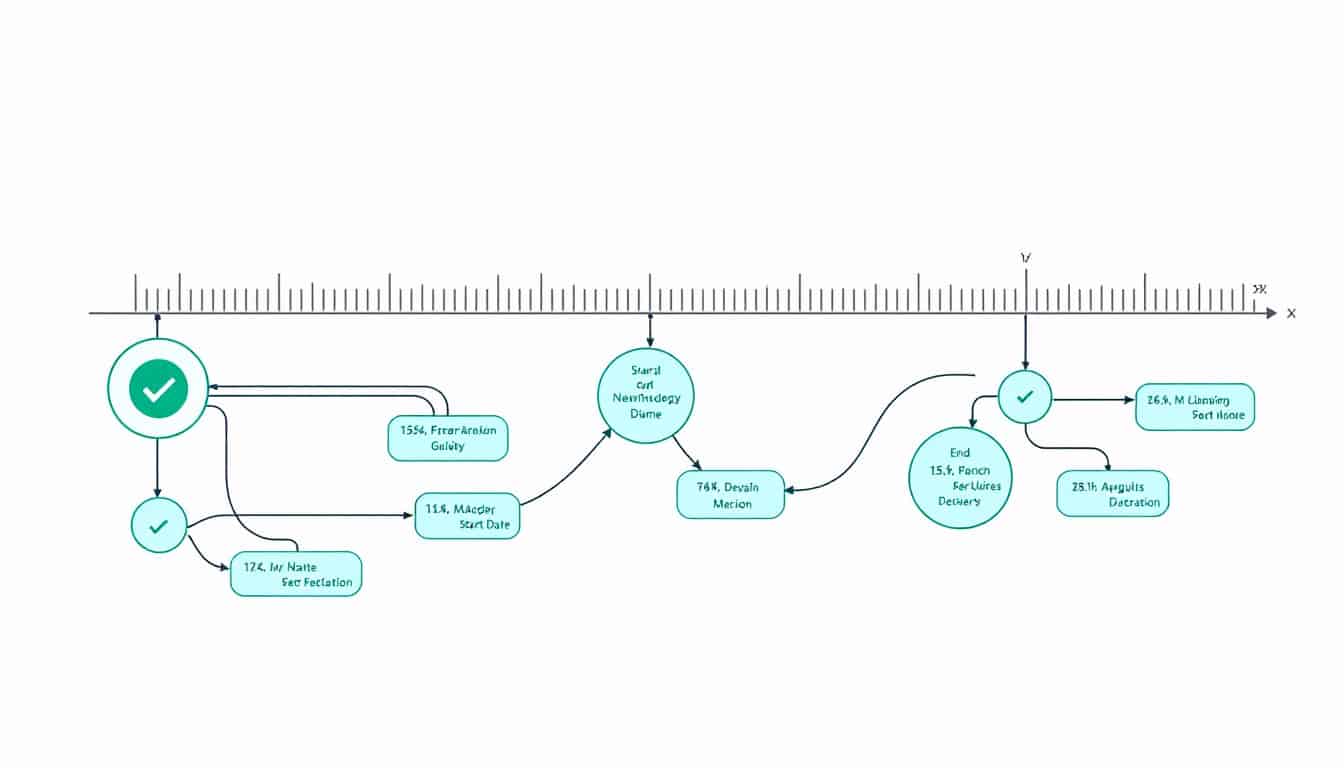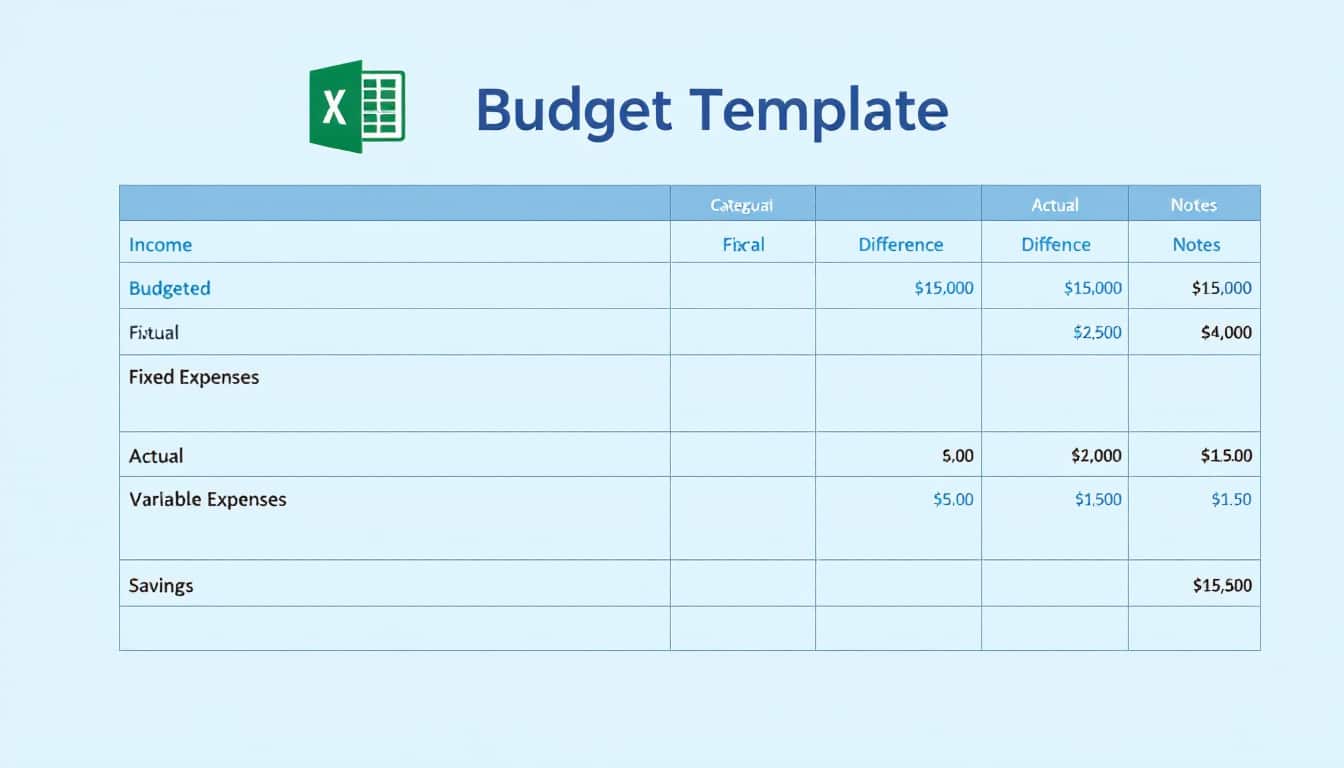Your choice of suppliers can transform the trajectory of your business.
Asking the right questions is the key to a successful partnership.
Ensuring quality, sustainability, and reliability starts with inquiry.
Navigating the world of suppliers requires a strategic approach. Ensuring product quality and effective logistics is essential for the success of your business. Learning how to evaluate the reliability of partners allows you to make informed decisions. Discover how to structure your inquiries to establish strong and sustainable partnerships.
🔥 Nous recommandons Ideamap
Ideamap est l’outil idéal pour un brainstorming ou un projet collaboratif. Grâce son interface facile et à ses fonctions IA, Ideamap booste votre créativité tout en favorisant une meilleure organisation de vos idées pour atteindre vos objectifs.
Choosing the right project supplier is a crucial step in ensuring the success of your initiatives. It’s not just about finding a competent service provider, but also about ensuring that they share your values and understand your objectives. Here are the essential questions to ask to make an informed choice.
How to ensure the quality of products or services provided
Quality is a key criterion in selecting a supplier. To assess this aspect, it’s essential to ask specific questions. Ask them what certifications they hold and how they maintain their quality standards. For example, “What quality certifications does your company hold?” allows for precise responses about their accreditations.
It’s also helpful to request references or case studies. This will give you a concrete idea of their expertise and their ability to manage projects similar to yours. Additionally, inquire about their quality control processes: “What are your processes to ensure quality at every stage of the project?”
Finally, don’t hesitate to discuss the warranties offered. A trustworthy supplier will provide robust guarantees and will be transparent about how they handle any defects or returns.
What is the sustainability and reliability of the supplier
Sustainability and reliability are essential for long-term collaboration. It is crucial to understand the financial stability of the supplier and their ability to support your project in the long term. Ask questions such as “How long has your company been in business?” or “Can you share your recent financial statements?”
In addition, inquire about their customer retention rate. A low turnover rate may indicate internal issues or customer dissatisfaction. Furthermore, ask how they handle unforeseen events and challenges. “How do you respond to delays or unexpected obstacles in a project?” is a pertinent question.
Also, explore their initiatives in terms of environmental and social sustainability. A supplier committed to sustainable practices shows responsibility that can align their values with yours.
How to evaluate their logistics and operational efficiency
Effective logistics is paramount for meeting the deadlines and budgets of your project. Ask the supplier how they manage the coordination and delivery of services or products. “What are your standard delivery times?” or “How do you ensure order tracking and management?” are essential questions.
It is also important to understand their ability to adapt their operations to your specific needs. “Can you adjust your processes according to the particular requirements of our project?” helps measure their flexibility.
Additionally, inquire about the tools and technologies they use for project management. Effective use of modern technologies can greatly enhance the fluidity and transparency of operations.
What are the solid partnerships and collaborations of the supplier
A good supplier does not operate in isolation. They often partner with other industry players, which can add value to your project. Ask, “What other partners or suppliers do you regularly collaborate with?” to understand their network.
These partnerships can indicate a capacity to offer comprehensive and integrated solutions. Additionally, they can strengthen the reliability and quality of the services provided. Knowing their collaborations can also provide ideas about complementary services or products that could benefit your project.
Integration with other partners can also facilitate the management of complex projects, ensuring better coordination and reducing the risk of malfunctions.
What are their differentiating factors and key competencies
Understanding what distinguishes a supplier from others is essential for assessing their relevance to your project. Ask questions such as “What are your key competencies and how do you differentiate yourself from your competitors?” This will help identify the unique strengths they can bring.
This may involve specific technologies, innovative methodologies, or particular expertise in a field. For example, a supplier might be the only one offering a certain technology or methodology that could significantly benefit your project.
Furthermore, explore their past successes and how their skills have contributed to the success of similar projects. “Can you share examples of successful projects where your skills made a difference?” is a key question.
How to assess the supplier’s technical skills and expertise
Technical skills and expertise of the supplier are determining elements for the success of your project. Ask for details about their qualifications and the experience of their team. For example, “What are the degrees and certifications of your team?” or “What experience do you have in projects similar to ours?”
Also explore their commitment to ongoing training and professional development. A supplier who invests in their team’s skills is more likely to provide high-quality services and adapt to market changes.
Finally, ask how they handle technical challenges. “Can you describe a major technical challenge you have overcome and how you solved it?” This will give you insight into their ability to manage complex situations.
What is their approach to project management
Project management is a crucial aspect of any collaboration. It’s important to understand how the supplier plans, executes, and monitors projects. Ask questions such as “What project management methodology do you use?” or “How do you ensure communication and transparency throughout the project?”
It’s also useful to discuss the tools they use for project management. Effective tools can improve coordination and ease progress tracking. “What project management tools do you use to ensure transparency and task tracking?” is a relevant question.
Finally, clarify the roles and responsibilities within their team. Knowing who is responsible for what can avoid misunderstandings and ensure that all stakeholders are aligned with the objectives and expectations.
What are the costs and payment terms
Financial aspects are crucial in choosing a supplier. It’s essential to understand the cost structure and the payment terms offered. Ask, “Can you detail your pricing structure?” or “What are your payment terms?” to avoid any financial surprises.
Compare costs with those of other suppliers to assess the competitiveness of their offers. However, do not focus only on the price; also consider the quality of services and any additional benefits they may offer.
Also discuss the possibilities for customizing services and any potential discounts for long-term commitments. “Do you offer discounts for long-term contracts or large volumes?” may be a helpful question.
How to evaluate cultural compatibility and the values of the supplier
Cultural compatibility between your business and that of the supplier can greatly influence collaboration. It’s important to ensure that the values and corporate culture are aligned. Ask questions like “What are your company’s core values?” or “How do you integrate your values into your projects and collaborations?”
Good cultural compatibility fosters smooth communication and a better understanding of mutual expectations. This can also facilitate conflict resolution and strengthen trust between the parties.
Furthermore, assess how they treat their employees and partners. A supplier who values their internal and external relationships is often a reliable and committed partner.
How to manage contracts and service clauses
Contracts define the terms of your collaboration, and it is crucial to understand them in detail. Ask questions about service clauses, warranties, and termination conditions. “What are the main clauses of your standard contract?” or “How do you manage project changes during the contract?” are important questions.
Ensure that the responsibilities of each party are clearly defined to avoid misunderstandings. Also discuss dispute resolution mechanisms in case of disagreement.
It is helpful to consult a legal advisor to review contracts and ensure that they protect your interests while remaining fair to both parties.
What is the supplier’s capacity for innovation and adaptation
Innovation is key in an ever-evolving environment. Ask the supplier about their capacity to innovate and adapt to new market demands. “How do you incorporate innovation into your services?” or “Can you provide examples of projects where you had to adapt quickly to changes?” are pertinent questions.
An innovative supplier often uses the latest technologies and methodologies to enhance their offerings and effectively meet client needs. This can translate into better service quality and greater customer satisfaction.
Additionally, explore their initiatives in research and development. “Do you invest in research and development to improve your services?” will give you a sense of their commitment to innovation.
What is the responsiveness and support offered by the supplier
Responsiveness and support are crucial aspects to ensure a smooth collaboration. Ask the supplier how they handle support requests and what their availability is in case of issues. “What is your average response time for support requests?” or “What types of support do you offer after project delivery?” are essential questions.
A responsive supplier is capable of quickly resolving issues, thus minimizing interruptions and ensuring project continuity. Evaluating their customer service can also give you an idea of their commitment to customer satisfaction.
It is also useful to know the available communication channels (phone, email, live chat) and their availability hours to ensure effective assistance if needed.
How to integrate open innovation and co-creation into your collaboration
Open innovation and co-creation are powerful strategies to stimulate creativity and efficiency in projects. Inquire about how the supplier integrates these concepts into their work. “How do you encourage co-creation with your clients?” or “What open innovation practices do you adopt?” are key questions.
By fostering a collaborative approach, both parties can share ideas and resources, potentially leading to more innovative and tailored solutions. Co-creation also allows for better alignment of expectations and creates a solid partnership feeling.
To learn more about co-creation and its stakes, you can refer to this comprehensive guide on co-creation.
What is the distinction between stakeholders and shareholders at the supplier
Understanding the structure of stakeholders and shareholders of your supplier can provide you with a clear view of their priorities and governance. Ask questions such as “Who are the main stakeholders of your company?” or “What is your ownership structure?”
This distinction is essential to evaluate how decisions are made and what the corporate priorities are. For example, a company where shareholders prioritize short-term growth may have different priorities from a company focused on long-term sustainability.
To delve deeper into this topic, check out this guide on the differences between stakeholders and shareholders.
What collaborative tools and technologies does the supplier use
Collaborative tools and technologies used by the supplier play a crucial role in the effective management of projects. Ask what platforms and software they employ to facilitate collaboration and communication. “What project management tools do you use?” or “How do you leverage collaborative technologies to enhance productivity?” are relevant questions.
Effective use of collaborative tools can enhance transparency, facilitate information sharing, and accelerate decision-making. This also allows for real-time progress tracking and ensures all stakeholders are aligned.
To learn more about the impact of collaborative tools, refer to this practical guide.
How to develop an effective procurement plan with your supplier
The development of a procurement plan is essential to align your needs with the supplier’s capabilities. Ask about their purchasing process and policies. “How do you structure your procurement plans?” or “Can you provide examples of successful procurement plans?” are crucial questions.
A well-defined procurement plan clarifies expectations, sets deadlines, and effectively manages resources. It is also important to discuss the terms for reviewing and adjusting the plan based on the project’s evolution.
For a practical guide on developing a procurement plan, refer to this complete guide with examples.
What is the supplier’s method for decommissioning a data center
The decommissioning of a data center is a complex task that requires specific expertise. Ask the supplier what their best practices and methodologies are for this process. “What steps do you follow for the secure decommissioning of a data center?” is an essential question.
Ensure they have the necessary skills to handle the technical and security aspects of decommissioning. An experienced supplier will be able to minimize risks and ensure a smooth transition.
To learn more about best practices for decommissioning, you can refer to this detailed article.
How does the supplier ensure the security of collaborative tools
The security of collaborative tools is paramount to protect the sensitive data and information of your project. Ask the supplier about the security measures they implement. “What are your security policies for collaborative tools?” or “How do you protect the data exchanged through your collaborative platforms?” are key questions.
Ensure that the supplier uses robust security protocols, such as data encryption and strict access controls. It is also important to know their procedures in case of a security breach.
To delve into the security aspects of collaborative tools, refer to this comprehensive guide.
What are the essential roles and responsibilities in the PRINCE2 project framework
The PRINCE2 project framework clearly defines the roles and responsibilities, ensuring structured and effective management. Ask the supplier how they integrate this method into their projects. “How do you apply the roles and responsibilities defined by PRINCE2 in your projects?” is a pertinent question.
Understanding their approach will reveal how they structure project governance and ensure accountability at each stage. This can also demonstrate their capacity to manage complex projects while adhering to recognized methodologies.
For a practical guide on the PRINCE2 project framework, consult this detailed guide.
How does the supplier manage large-scale transformational projects
Large-scale transformation projects require particular expertise and meticulous planning. Inquire about the supplier’s experience and methods for managing such projects. “Can you describe your approach to large-scale transformation projects?” is an essential question.
Evaluate their capacity to mobilize the necessary resources, manage stakeholders, and maintain coherence throughout the project. An experienced supplier will anticipate challenges and implement effective strategies to overcome them.
To discover the key questions before starting a transformation project, consult this comprehensive guide.
How does the supplier help legal leaders deploy generative AI securely
Generative AI offers innovative opportunities but requires secure management, especially in the legal field. Ask the supplier how they can help you deploy this technology safely and effectively. “What measures do you take to ensure security when implementing generative AI?” is a key question.
A competent supplier will guide you on best practices for integrating generative AI while respecting regulations and security standards. They may also offer tailored solutions to meet your project’s specific needs.
What are the best HRIS tools offered by the supplier
HRIS tools (Human Resource Information Systems) are essential for the effective management of human resources. Ask the supplier what the best HRIS tools they offer are and how they can benefit your business. “What HRIS tools do you recommend for optimizing human resource management?” is a relevant question.
Evaluate the functionalities offered by each tool, their compatibility with your existing systems, and ease of use. A good supplier will provide flexible and customizable solutions to meet your specific needs.
To discover the best HRIS tools in 2025, refer to this comprehensive guide.
How does the supplier support the creation and optimization of the customer journey
A well-designed customer journey is crucial for the overall experience of your customers. Inquire about the supplier’s method for creating and optimizing this journey from A to Z. “What method do you use to develop and optimize the customer journey?” is an essential question.
A good supplier should demonstrate a deep understanding of your customers’ needs and the ability to customize the journey accordingly. They should also be able to use analytics tools to measure effectiveness and implement continuous improvements.
To learn more about creating customer journeys, refer to this comprehensive guide.
How to effectively contract a business loan with your supplier
Contracting a business loan is an important step for funding your projects. Ask the supplier if they offer advice or financing solutions that are suitable. “Do you offer business loan options for your clients?” is a relevant question.
Evaluate the loan terms, interest rates, and repayment conditions to ensure they align with your financial capacity and project needs. A flexible supplier will be able to offer tailored solutions to facilitate your financing.
To learn about the essential steps to contract a business loan, refer to this comprehensive guide.
How does the supplier integrate open innovation into your business
Open innovation fosters collaboration and the exchange of ideas to stimulate growth and innovation. Ask the supplier how they can help you integrate this approach into your business. “How can you help us adopt open innovation within our organization?” is a key question.
A proactive supplier will propose strategies and tools to facilitate co-creation and external collaboration. This may include workshops, partnerships with startups, or the use of collaborative platforms.
To learn more about integrating open innovation, refer to this comprehensive guide.
What case studies and boxes does the supplier present
Case studies and boxes allow for a better understanding of the supplier’s expertise and experience. Ask them to share concrete examples of successful projects. “Can you provide case studies or examples of similar projects you have undertaken?” is an essential question.
These examples will give you a precise idea of their capacity to adapt their solutions to different contexts and address specific challenges. They also illustrate their skills and methodological approach.
In addition to case studies, informative boxes can provide valuable insights into industry best practices and trends.
How to develop a privacy policy with your supplier
A robust privacy policy is essential to protect sensitive data in your project. Inquire about the supplier’s practices regarding privacy. “What is your privacy policy and how do you protect sensitive data?” is a crucial question.
Ensure that the supplier complies with current regulations, such as GDPR, and has adequate security measures in place to prevent data breaches. It is also important to discuss the procedures in case of a privacy violation.
To draft an effective privacy policy, refer to this comprehensive guide.
How to design services with the supplier’s essential tools and techniques
The design of services relies on precise methods and techniques. Ask the supplier what approaches they use to design and optimize the services offered. “What methods and tools do you use for service design?” is a key question.
A competent supplier will use user-centered design tools, prototyping techniques, and agile methodologies to develop effective services tailored to your needs. This ensures that services are not only functional but also aligned with the expectations of end users.
To learn more about service design methods and techniques, refer to this comprehensive guide.
How does the supplier manage the impact of collaborative tools on project management
The impact of collaborative tools on project management is significant. Inquire about the supplier’s approach to integrating these tools into managing your projects. “How do you use collaborative tools to improve project management?” is a pertinent question.
Collaborative tools can enhance communication, facilitate information sharing, and allow for better team coordination. A supplier who masters these tools will optimize your project management processes, reduce timelines, and increase efficiency.
To understand the impact of collaborative tools, refer to this comprehensive guide.
What is co-creation and how does the supplier understand it
Co-creation is a collaborative process that allows for the development of innovative solutions in partnership with clients. Ask the supplier how they integrate co-creation into their projects. “How do you practice co-creation with your clients?” is an essential question.
A supplier engaged in co-creation will foster a deeper understanding of your needs and encourage innovation through diverse ideas and perspectives. This can lead to more effective and personalized solutions.
To understand co-creation in depth, refer to this comprehensive guide.














